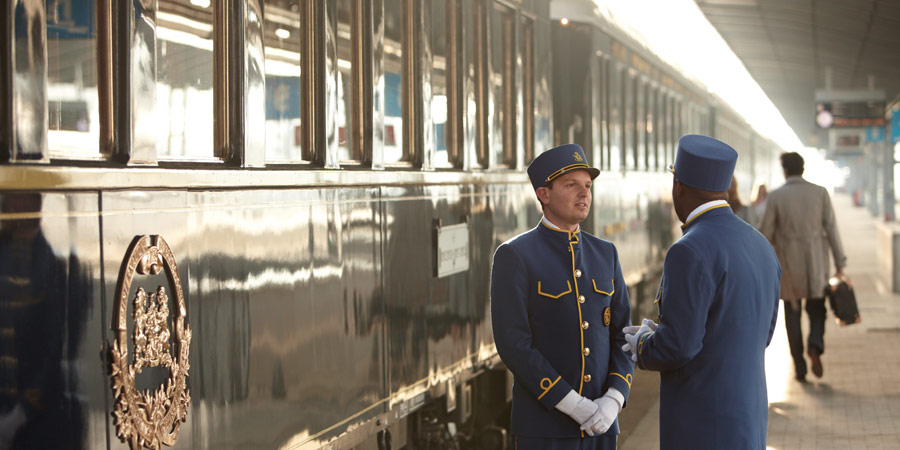Types Of Chance Average ratng: 3,5/5 6387 votes
Pedunculated Polyp. This type of polyp is when it is attached to the mucous membrane and has a. From this point of view, indeterminate or chance music can be divided into three groups: (1) the use of random procedures to produce a determinate, fixed score, (2) mobile form, and (3) indeterminate notation, including graphic notation and texts.
Chance cards are orange and are placed near the Go space. A Chance card is more likely (than a Community Chest card) to move players, often with lethal consequences (especially due to the Advance To Boardwalk card). Traditionally, the question marks placed on the Chance spaces around the board are pink, blue, and red, in that order. A game of chance is a game whose outcome is strongly influenced by some randomizing device. Common devices used include dice, spinning tops, playing cards, roulette wheels, or numbered balls drawn from a container. A game of chance may be played as gambling if players wage money or anything of monetary value. Alternatively, a game of skill is one where the outcome is determined mainly.
Roulette is a game of pure chance, no strategy can give players advantages, the outcome is determined by randomness
A game of chance is a game whose outcome is strongly influenced by some randomizing device. Common devices used include dice, spinning tops, playing cards, roulette wheels, or numbered balls drawn from a container. A game of chance may be played as gambling if players wage money or anything of monetary value.

Alternatively, a game of skill is one where the outcome is determined mainly by mental or physical skill, rather than chance.[1]
While a game of chance may have some skill element to it, chance generally plays a greater role in determining its outcome. A game of skill may also may have elements of chance, but skill plays a greater role in determining its outcome.
Gambling is known in nearly all human societies, even though many have passed laws restricting it. Early people used the knucklebones of sheep as dice. Some people develop a psychological addiction to gambling, and will risk even food and shelter to continue.

Some games of chance may also involve a certain degree of skill.[2] This is especially true where the player or players have decisions to make based upon previous or incomplete knowledge, such as blackjack. In other games like roulette and punto banco(baccarat) the player may only choose the amount of bet and the thing he wants to bet on; the rest is up to chance, therefore these games are still considered games of chance with small amount of skills required.[3] The distinction between 'chance' and 'skill' is relevant because in some countries chance games are illegal or at least regulated, but skill games are not.[4][5] Since there is no standardized definition, poker, for example, has been ruled a game of chance in Germany and, by at least one New York state Federal judge, a game of skill there.[6]
Addiction[edit]
People who engage in games of chance and gambling can develop a strong dependence on them.[7] This is called psychopathology (addiction) of 'pathological gambling'. According to psychoanalyst Edmund Bergler, there are six characteristics of pathological gamblers:[8]
Types Of Chance Fracture
- They must play regularly: the issue here is to know from when the subject performs 'too much.'
- The game takes precedence over all other interests.
- There is optimism in the player that is not initiated by repeated experiences of failure.
- The player never stops until they win.
- Despite the precautions that they originally promised, they end up taking too many risks.
- There is in them a subjective experience of 'thrill' (a shivering sensation, excitement, tension, both painful and pleasant) during the phases of play.
See also[edit]
References[edit]
- ^Dervishi, Kay (2019-06-18). 'Other games of chance and skill on Albany's agenda'. CSNY. Retrieved 2018-06-25.
- ^'Huge Slots'. Holy Moly Casinos. Jun 20, 2017.
- ^'Baccarat Strategy Guide'. CasinoObserver.com. Retrieved 2013-03-06.
- ^McManus, James (24 August 2012). 'Poker, an American Pastime and a Game of Skill'. nytimes.com. Retrieved 2018-06-25.
- ^Drape, Joe (4 August 2016). 'Win for DraftKings and FanDuel Opens Door for Sports Betting in New York'. nytimes.com. Retrieved 2018-06-25.
- ^Secret, Mosi (21 August 2012). 'Poker, a Game of Skill, Is Not Truly Gambling, a Judge Rules'. The New York Times. Retrieved 2018-06-25.
- ^'Gambling and chance'. SetThings. Retrieved July 6, 2017.
- ^Edmund Bergler. 'The Psychology of Gambling (1957)'.
Retrieved from 'https://en.wikipedia.org/w/index.php?title=Game_of_chance&oldid=1004837343'
Probability and statistics
- Early probability
- The rise of statistics
- Statistical theories in the sciences
Please select which sections you would like to print:
While every effort has been made to follow citation style rules, there may be some discrepancies. Please refer to the appropriate style manual or other sources if you have any questions.
Our editors will review what you’ve submitted and determine whether to revise the article.
Join Britannica's Publishing Partner Program and our community of experts to gain a global audience for your work!Articles from Britannica Encyclopedias for elementary and high school students.
Theodore M. PorterProfessor of History, University of California, Los Angeles. Author of The Rise of Statistical Thinking, 1820-1900; Trust in Numbers.
Probability and statistics, the branches of mathematics concerned with the laws governing random events, including the collection, analysis, interpretation, and display of numerical data. Probability has its origin in the study of gambling and insurance in the 17th century, and it is now an indispensable tool of both social and natural sciences. Statistics may be said to have its origin in census counts taken thousands of years ago; as a distinct scientific discipline, however, it was developed in the early 19th century as the study of populations, economies, and moral actions and later in that century as the mathematical tool for analyzing such numbers. For technical information on these subjects, seeprobability theory and statistics.
Define It: Math Terms
Here is your mission, should you choose to accept it: Define the following math terms before time runs out.
Early probability
Games of chance
The modern mathematics of chance is usually dated to a correspondence between the French mathematicians Pierre de Fermat and Blaise Pascal in 1654. Their inspiration came from a problem about games of chance, proposed by a remarkably philosophical gambler, the chevalier de Méré. De Méré inquired about the proper division of the stakes when a game of chance is interrupted. Suppose two players, A and B, are playing a three-point game, each having wagered 32 pistoles, and are interrupted after A has two points and B has one. How much should each receive?
Fermat and Pascal proposed somewhat different solutions, though they agreed about the numerical answer. Each undertook to define a set of equal or symmetrical cases, then to answer the problem by comparing the number for A with that for B. Fermat, however, gave his answer in terms of the chances, or probabilities. He reasoned that two more games would suffice in any case to determine a victory. There are four possible outcomes, each equally likely in a fair game of chance. A might win twice, AA; or first A then B might win; or B then A; or BB. Of these four sequences, only the last would result in a victory for B. Thus, the odds for A are 3:1, implying a distribution of 48 pistoles for A and 16 pistoles for B.
Pascal thought Fermat’s solution unwieldy, and he proposed to solve the problem not in terms of chances but in terms of the quantity now called “expectation.” Suppose B had already won the next round. In that case, the positions of A and B would be equal, each having won two games, and each would be entitled to 32 pistoles. A should receive his portion in any case. B’s 32, by contrast, depend on the assumption that he had won the first round. This first round can now be treated as a fair game for this stake of 32 pistoles, so that each player has an expectation of 16. Hence A’s lot is 32 + 16, or 48, and B’s is just 16.
Get a Britannica Premium subscription and gain access to exclusive content. Subscribe Now
Games of chance such as this one provided model problems for the theory of chances during its early period, and indeed they remain staples of the textbooks. A posthumous work of 1665 by Pascal on the “arithmetic triangle” now linked to his name (seebinomial theorem) showed how to calculate numbers of combinations and how to group them to solve elementary gambling problems. Fermat and Pascal were not the first to give mathematical solutions to problems such as these. More than a century earlier, the Italian mathematician, physician, and gambler Girolamo Cardano calculated odds for games of luck by counting up equally probable cases. His little book, however, was not published until 1663, by which time the elements of the theory of chances were already well known to mathematicians in Europe. It will never be known what would have happened had Cardano published in the 1520s. It cannot be assumed that probability theory would have taken off in the 16th century. When it began to flourish, it did so in the context of the “new science” of the 17th-century scientific revolution, when the use of calculation to solve tricky problems had gained a new credibility. Cardano, moreover, had no great faith in his own calculations of gambling odds, since he believed also in luck, particularly in his own. In the Renaissance world of monstrosities, marvels, and similitudes, chance—allied to fate—was not readily naturalized, and sober calculation had its limits.
Quick Facts
Types Of Chance Games
- key people
- related topics